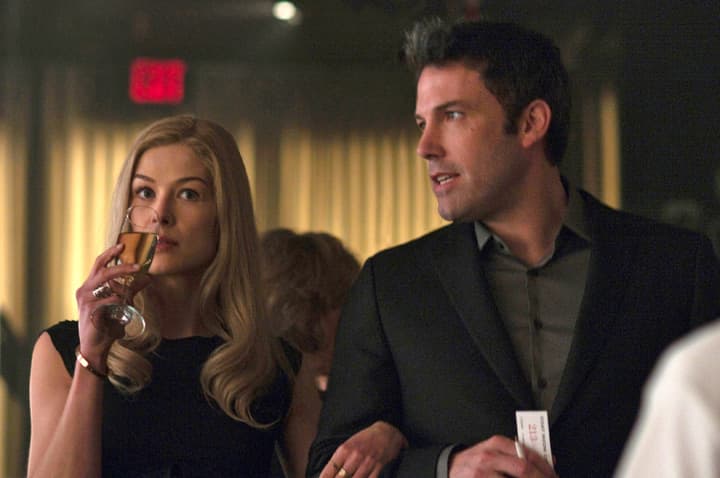
In the riveting realm of “Gone Girl,” crafted by Gillian Flynn and brought to life by David Fincher on the silver screen, film critics express diverse opinions regarding the superiority of either the book or the movie. Initially based on Flynn’s bestseller, the narrative unfolds with the discovery of Nick’s infidelity by Amy.
Book Insights: Unveiling Amy’s Complexity
The book meticulously dissects Amy’s manipulation, portraying a character capable of intricate planning and psychological warfare. The unraveling of her psychopathic tendencies adds layers to the narrative, creating a compelling exploration of her descent into madness.
Nick’s Flaws: A Deeper Dive into the Book Observations
Nick’s flaws, evident from the start, take center stage in the book. His selfishness and involvement in an affair contribute to the toxic nature of his relationship with Amy. The exploration of Nick’s role in Amy’s descent adds complexity to their tumultuous connection.
Cinematic Brilliance: A Gone Girl Movie Review
Ben Affleck’s Nick and Rosamund Pike’s Amy come to life on the big screen, capturing the audience with nuanced performances. The adaptation stays true to the tension and emotional intricacies of the novel. Cinematic brilliance shines through in the adaptation choices and character portrayals.
Discover this movie review
Desi’s Character: Shifting Perceptions in Book vs. Movie
Desi’s character undergoes shifts in likability between the book and movie. The cinematic version softens his character, altering perceptions and contributing to the varied dynamics within Amy’s life.
Treasure Hunt Thrills: Cinematic Delights and Book Details
The treasure hunt, a captivating element in both versions, maintains suspense with subtle differences. Cinematic thrills and the meticulous planning showcased in the book make the narrative engaging.
Breaking Stereotypes: Flynn’s Gender Portrayals
Gillian Flynn challenges stereotypes by presenting Amy as a pragmatically evil character. The exploration of both genders in the narrative challenges societal norms, adding depth to the storytelling. Exploring the nuanced reception of “Gone Girl” in literary and cinematic realms.
Critics have engaged in an ongoing discourse, dissecting the merits of “Gone Girl” as both a literary masterpiece and a cinematic triumph. Gillian Flynn’s intricate storytelling, coupled with David Fincher’s directorial prowess, has fueled a captivating debate among critics, each medium offering its unique allure.
Book Brilliance: Literary Depth and Character Exploration
Literary critics often laud the book’s ability to delve deep into the psyches of its characters. Flynn’s prose, filled with psychological intricacies, allows readers to navigate the complexities of Nick and Amy’s toxic relationship with a level of detail that cinematic adaptations sometimes struggle to capture.
The narrative’s internal monologues and layered character development contribute to a rich reading experience, offering a profound exploration of the human psyche.
Cinematic Brilliance: Visual Storytelling and Performances
Conversely, film critics celebrate Fincher’s directorial finesse in bringing “Gone Girl” to life on the big screen. The visual storytelling, accompanied by stellar performances from Ben Affleck and Rosamund Pike, elevates the narrative to new heights.
The adaptation successfully maintains the suspense and tension present in the book, translating Flynn’s words into a visually arresting experience. Fincher’s meticulous attention to detail and the cast’s compelling portrayals contribute to the movie’s critical acclaim.
Diverging Opinions: The Complex Nature of Adaptations
Critics acknowledge the inherent challenges of adapting a book as intricate as “Gone Girl” into a two-hour cinematic experience. While some appreciate the cinematic nuances that amplify certain elements of the narrative, others argue that the book’s depth and internal dialogues are irreplaceable.
The divergence in opinions highlights the subjective nature of adaptations, where individual preferences play a significant role in shaping critical perspectives.
Conclusion
As the debate between the merits of “Gone Girl” in book and movie form rages on, it becomes evident that both mediums have carved out their unique realms of excellence. Gillian Flynn’s literary prowess, coupled with David Fincher’s cinematic brilliance, has created a narrative that transcends boundaries.
In the literary realm, the book shines with its intricate character explorations and psychological depth. Flynn’s command over language and her ability to unravel the complexities of Nick and Amy’s tumultuous relationship offer readers a profound and immersive experience.
On the cinematic front, Fincher’s directorial finesse, coupled with stellar performances, brings the narrative to life with a visual grandeur that captivates audiences. The suspenseful storytelling and meticulous attention to detail elevate the movie to critical acclaim.
However, the ultimate verdict lies in the subjective preferences of individuals. “Gone Girl” stands as a dual triumph, showcasing the power of storytelling in both literature and cinema, leaving an indelible mark on the hearts and minds of those who embark on its enigmatic narrative.